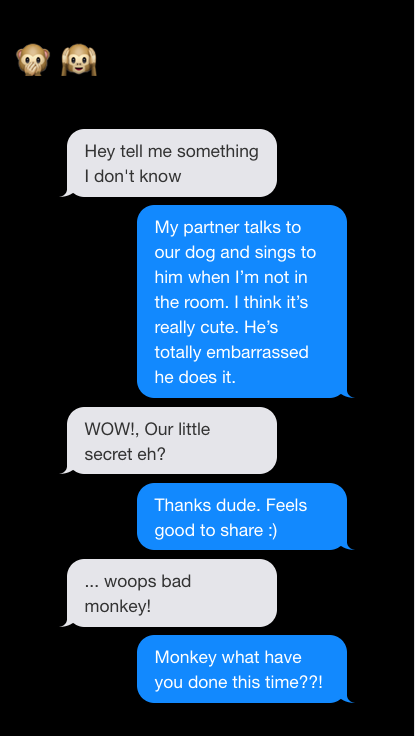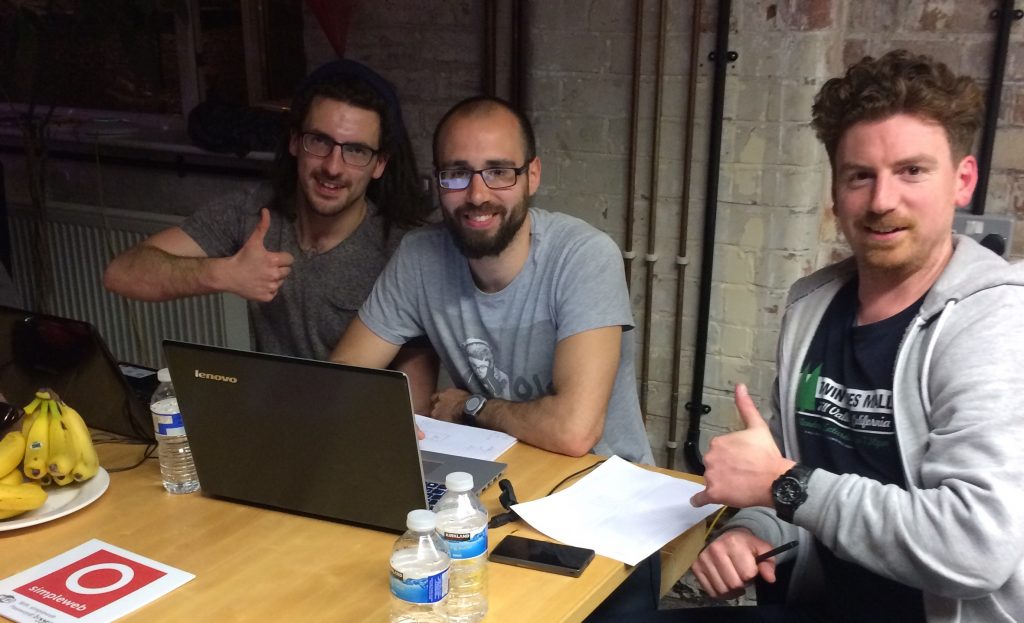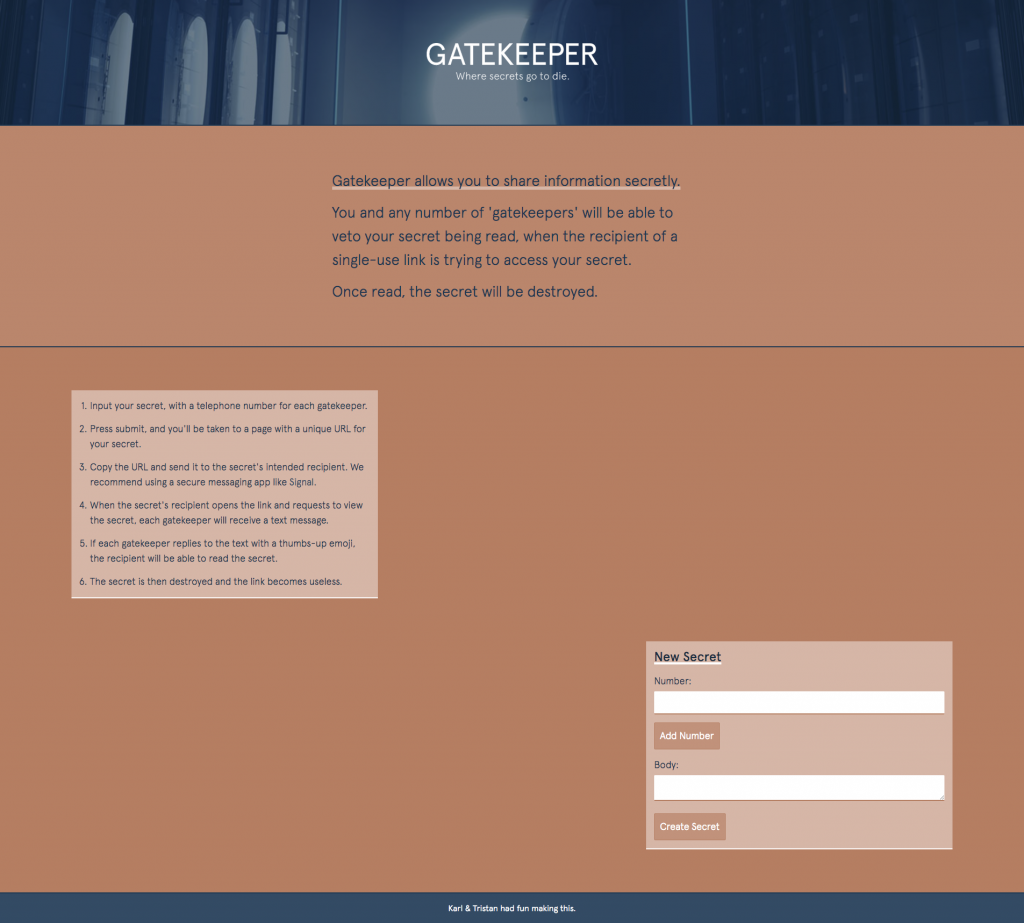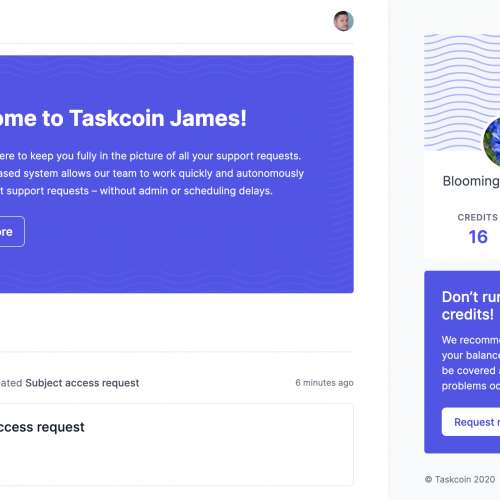Last week, we held a “Secrets” themed hacknight sponsored by PixelPin – an image based authentication platform replacing passwords with images. In a time when an increasing amount of data is being collected on all of us (the majority of which goes pretty much unnoticed), we wanted to challenge the narrative of privacy and invite people to chat, share and hack around the theme of secrets.
We started off with some tasty homemade chilli and cake courtesy of Geekfeeder. Jaycee, who will be joining the Simpleweb team soon, shared her love of the homemade food, saying she often ends up skipping “food at events as they opt in for the generic pizza.”
About 35 people came to hack, and the topic really struck a chord with them…
Javier, a full-stack developer from Tuware, voiced his concern over privacy. “It’s a huge concern for me… it’s concerning that so many people have some of your secrets, knowing things like where you are, there’s just too much information.”
Designer and developer from PermaDesign, Tristan, spoke about the importance of the web being open, saying it should stay, “out of corporate ownership, and personal privacy is integral to that.”
Freelance developer, Ruth, said the theme was very pertinent due to “today’s digital landscape and the fact so much data is being stored without many of us being aware of it.”
We were also joined by a journalist from Bristol247 who wrote this article about us. While we do appreciate it, we found the article a little ‘off’ in its focus on secrets. The whole point of our hacknights is community – its about getting together with people with a variety of knowledge and experience and creating great things. We’re not ‘hip’, ‘exclusive’ or ‘elusive’ – we’re just a bunch of people hanging out and doing what we love.
So without any further ado… here’s the winning hacks!
The winners
After a mere three hours of hacking, we called time and, wow, there were some amazing feats of work completed in such a short space.
There was no shortage of ambition, and it was great to see such innovation and such a broad interpretation of the theme.
Everyone was given a couple of minutes each to demo their ideas, before the PixelPin team retired to choose the winners.
Before we get to them, here’s a few honourable mentions…
Simpleweb developers Andy and Jaycee got to work on “an encrypted messaging app, relying on end to end encryption via the OpenPGP2 encryption protocol (meaning the message will be encrypted at point of sending and will only be unencrypted when the end user opens the message). We also wanted to use ssh-key based authentication so that no passwords get lost or stolen.”
Unfortunately, they didn’t manage to get a working prototype finished on time, but they did demo the idea and how it worked.
Another Simpleweb developer, Tom, built a two factor authentication Telegram bot as a service. “The product can be built into web and mobile apps and be optionally used as a second form of authentication.
“I built it as I wanted to give the Telegram bot API a go and as Telegram has a client for most platforms, it allows the user to easily authenticate, no matter which device they are using” says Tom.
All the hacks were judged by the PixelPin team and here’s a breakdown of who won…
Most Innovative Tech: Jurassic Lemmings
Ben @BenjaminReid, Ruth @Rumyra, David @DavidDarnes

Jurassic Lemmings was created by developers Ben, Ruth and David. As David remarked the whole idea “felt like a combination of all our desires to build s omething fun and interesting. Ben wanted to build a time capsule inspired by an animation from Jurassic Park. Ruth was interested by the vault itself, and sharing secrets from said vault. And I just wanted to build a fun 8-bit style graphic that people could interact with”.
omething fun and interesting. Ben wanted to build a time capsule inspired by an animation from Jurassic Park. Ruth was interested by the vault itself, and sharing secrets from said vault. And I just wanted to build a fun 8-bit style graphic that people could interact with”.
Users can submit their secrets via their phone into a ‘vault’. For each secret submitted, the Lemmings dig deeper towards the vault. Once the vault is reached, everyone who submitted a secret, anonymously receives someone else’s.
Most Absurd: Secret Monkey
Nick @nickwforsberg

Nick suggests that with the rise of “social and cloud based technologies, we seem to have forgotten some basic rules around sharing them. This seemed like a good opportunity to highlight that.”
In doing so Nick wanted to make fun of the way we trust and share information with technology and corporations. So he created ‘Secret Monkey’…
A simple program, it was designed to store your secrets safely. Unfortunately your secrets are being managed by a “little monkey”. Through the use of voice recognition, the cheeky monkey randomly decides whether or not to share your secrets behind your back. This could be texting your friends to eventually getting on your social feed to start spilling the beans. Nick was delighted with the result and thought, “Hey, some people might be into this kind of embarrassment…”.
PixelPin Prize: Hidden in Plain Sight
Javier, Hubert and Karl
Javier and Hubert from Tuware teamed up with Edtech entrepreneur, Karl, to create an app that fools hackers into believing they have succeeded. Karl stated they all “loved the concept of hiding in plain sight and creating a type of alternate holographic reality that would lure in potential attacks.”

When a hacker attempts to login to an account, they are granted access to a fake account.
Lo and behold, the information they see is fake. While all this happening, the genuine user receives a notification that they’ve been ‘hacked’, making them aware of what’s happening and taking any remediation steps that needed to be taken.
Most Commercially Viable: GateKeeper
Karl @karlentwistle and Tristan @wavetemple

Gatekeeper was created by Simpleweb developer Karl and Tristan, a designer and developer at Bristol Web Studio PermaDesign. The idea behind the product was to allow you to share information secretly by allocating ‘gatekeepers’.

If a user wants to send private information, they must create a single-use link and assign two ‘gatekeepers’. When the recipient clicks on the link, both gatekeepers will be informed, and the information will only become visible when approved by both gatekeepers. Once viewed the secret is then destroyed and the link becomes useless.
Thanks!
It was humbling to hear so much love from everyone that joined us last week. A final thanks to all those who came and a big thank you to PixelPin for sponsoring the event. We had an awesome time and, in keeping with the theme, here’s a quote from Simpleweb’s Nick that summed up much of talk that night – “humans need secrets, and it’s our right to keep secrets.”
Join us on Meetup and find out about our upcoming events.



